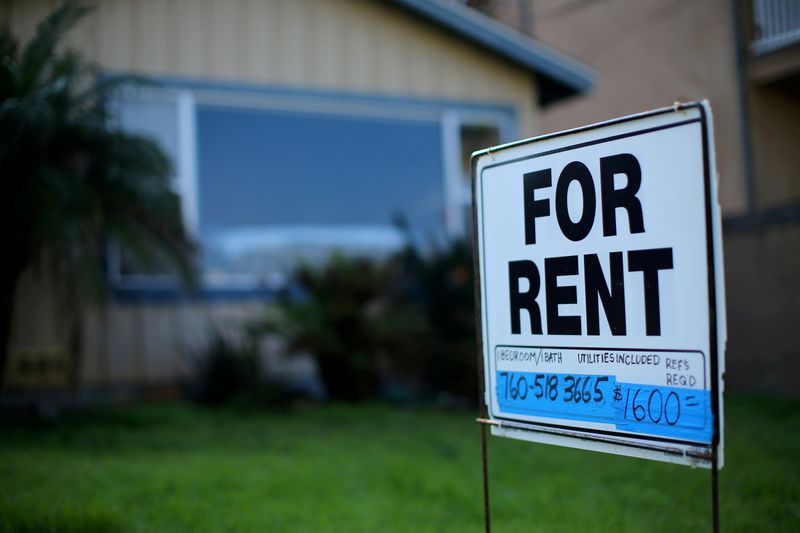By Jonathan Stempel and David Shepardson
WASHINGTON (Reuters) -A federal judge on Wednesday threw out the U.S. Centers for Disease Control and Prevention's nationwide moratorium on evictions but agreed to put a temporary hold on her ruling as the government seeks to reverse the decision on appeal.
U.S. District Judge Dabney Friedrich said that although there was "no doubt" Congress intended to empower the CDC to combat COVID-19 through a range of measures such as quarantines, a moratorium on residential evictions was not among them. The ruling was a setback for millions of Americans who have fallen behind on rent payments during the pandemic.
The Justice Department sought an emergency order to put Friedrichs's decision on hold, arguing "evictions exacerbate the spread of COVID-19, which has already killed more than half a million Americans, and the harm to the public that would result from unchecked evictions cannot be undone."
Friedrich agreed to temporarily put her ruling on hold and gave the landlord groups that challenged the moratorium until May 12 to file legal papers opposing the delay. She emphasized she had not ruled on the merits of the government's request.
Friedrich's order gives the Justice Department four days to respond after the landlord groups' file legal papers.
Friedrich cited the "plain language" of a law called the Public Health Service Act, which governs the federal response to the spread of communicable diseases, even while acknowledging that the pandemic is "a serious public health crisis that has presented unprecedented challenges for public health officials and the nation."
Evictions "exacerbate the spread of COVID-19," and the moratorium "protects many renters who cannot make their monthly payments due to job loss or healthcare expenses," Brian Boynton, acting assistant attorney general for the department's civil division, said in a statement.
The White House has estimated that one in five renters were delinquent on payments by January, while the CDC has said more than 4 million adults who were behind feared imminent eviction.
Friedrich's decision benefits the many landlords struggling to pay their own bills because they are unable to collect rent.
The CDC moratorium began last September and was scheduled to lapse on June 30. Other courts have been divided over its legality, with some also finding the CDC exceeded its authority. Friedrich, an appointee of former President Donald Trump, was the first to formally block the eviction ban.
At least 43 states and Washington, D.C., have also temporarily halted residential or business evictions, though the protections are far from uniform.
Landlords and real estate groups that challenged the moratorium in court said the CDC lacked the power to impose it, and unlawfully took away their right to deal with delinquent tenants.
A separate eviction and foreclosure moratorium for federally financed housing from the U.S. Department of Housing and Urban Development is due to expire on June 30.
HEALTH MEASURE
The CDC began the moratorium during Trump's presidency and it was extended three times, most recently in March under his successor Joe Biden.
It covered renters who expected to earn less than $99,000 a year, or $198,000 for joint filers, or who reported no income, or received stimulus checks. Renters also had to swear they were doing their best to make partial rent payments, and that evictions would likely leave them homeless or force them into "shared" living quarters.
The National Association of Realtors welcomed Friedrich's decision, saying programs to help tenants pay rent, taxes and utility bills are preferable to the moratorium.
"With rental assistance secured, the economy strengthening and unemployment rates falling, there is no need to continue a blanket, nationwide eviction ban," the group said.
The group has estimated that 40 million Americans were behind on rent in January, with $70 billion of missed payments by the end of 2020.
"We know eviction spreads COVID-19, we know it disrupts access to healthcare and we know it's increasing health inequity among Black and Latinx people," said Emily Benfer, a visiting law professor at Wake Forest University and expert on evictions. "The moratorium stops all of these harms."

Congress approved $25 billion of emergency rental assistance in December and another $21.5 billion in March.
Diane Yentel, president of the National Low Income Housing Coalition advocacy group, said the moratorium should stay in place at least until the assistance provided by Congress "reaches the renters who need it."